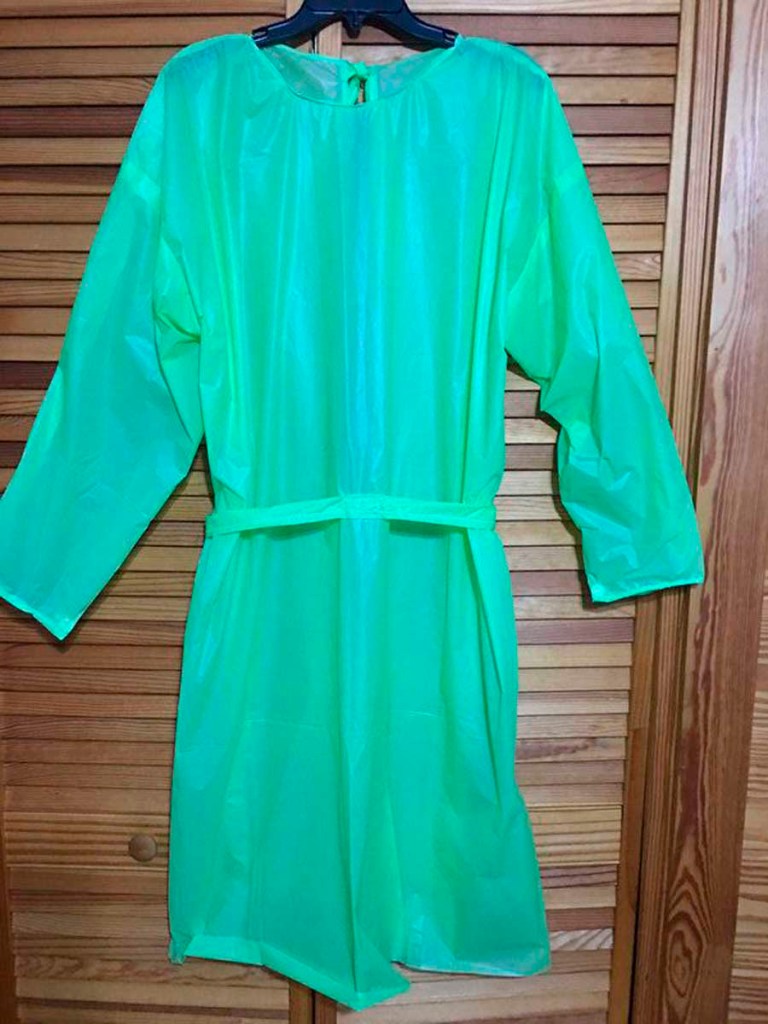Effort underway to provide health care with homemade gowns
Published 2:04 pm Thursday, April 9, 2020

- Submitted photoShown is an example of the gowns being made using plastic tablecloths.
CAIRO — With crucial medical supplies running low, one Grady County woman is organizing an effort to sew polyethylene gowns for local doctors and first responders.
“We’re looking for sewers, we’re looking for people who can cut out patterns and people that can cut the gowns from the pattern,” said Nola Daughtry, executive director of the Grady County Family Connection.
Nearby hospitals have had easier access to key medical supplies during the coronavirus pandemic, but local doctors offices and first responders still have to purchase items such as hospital gowns on their own. Needing enough gowns to last until a new shipment can arrive, and no guarantees as to when that could be, Daughtry is hoping to meet a critical need using 160 plastic tablecloths, which she said are cheap and easy to obtain.
Anyone interested in joining the effort can contact Daughtry at (229) 378-7272. Once connected with Daughtry, volunteers can collect materials at a pickup center organized at First United Methodist Church and begin work on making the gowns at home. Additional donations of tablecloths to Family Connection are also welcome.
Daughtry is asking volunteers to contact her first before heading out to pick up materials to keep the effort organized.
“If I have too many cutters and not enough sewers, it’s going to be hard to get (the gowns) out,” she said. “We’re trying to figure out the best way to handle this.”
It was Daughtry’s sister Jane Martin who designed the cut-out pattern from a pre-made gown provided by a local hospital and then created the first homemade gown using plastic tablecloths. The design was then approved by two officials with Archbold Medical Center.
With help from donations from local entities including Miss Myrt’s Cake and Candy Supplies, United National Bank and Walmart, Daughtry believes she has enough supplies to turn to the community for assistance. Only a handful gowns have been made so far, but Daughtry is hoping to ramp up production by reaching out to the community for help.
For the safety of those involved, volunteers will gather tablecloths and then head home to get started on producing gowns. Daughtry said one gown can be produced per tablecloth. Once completed, the gowns will be individually wrapped in plastic bags with the date of completion written to allow medical professionals to know how long to keep their supplies stockpiled. A central drop-off point will be organized to allow for supplies to be distributed to local doctors and first responders.
In addition to encouraging residents to continue abiding by guidelines issued by the national Centers for Disease Control and Prevention (CDC), Daughtry said interested volunteers who are sick should stay at home.
“Don’t worry about helping,” she said. “We just want them to get better.”





